Recent Research Projects
“Three Celebrations of the Chaozhao Hungry Ghosts (Yulan) Festival: Research, Transmission, and Promotion”
Funded by the Intangible Cultural Heritage Office, HKSAR Government Amount of Grant: HK$1,004,400
Project Description:
The project will record and analyze features in the Festival that are considered as intangible cultural heritage. Besides studying and documenting the process of organizing the Festival, site layout and use, contents of the religious ceremonies, performance of Chiu Chow operas, techniques of bamboo shed theatre building, and paper crafting, the project also analyzes how Hong Kong’s collective memories and economic history are embedded in the Festival. A virtual Yulan museum will be constructed to display research findings and provide a virtual tour. A documentary and video clips of the Yulan Festival will be displayed on the virtual museum’s website, as well as comic strips, animations, drawings, old photos, and texts. There will be virtual guided tour services of the Yulan Festival, which will allow visitors to interact with the environment, as well as explore and experience a ceremony or artefacts.
Deliverables
潮籍盂蘭勝會的宗教意義
盂蘭最早傳承自印度的佛教,《佛說盂蘭盆經》記載了釋迦牟尼佛的弟子目連救母的故事,講述目連的母親生前做了錯事,死後墮入惡道飽受折磨。後來用盆子裝滿百味五果供養佛陀和僧侶,拯救墮落在惡道的眾生,成功救母親脫離苦海。
目連救母的故事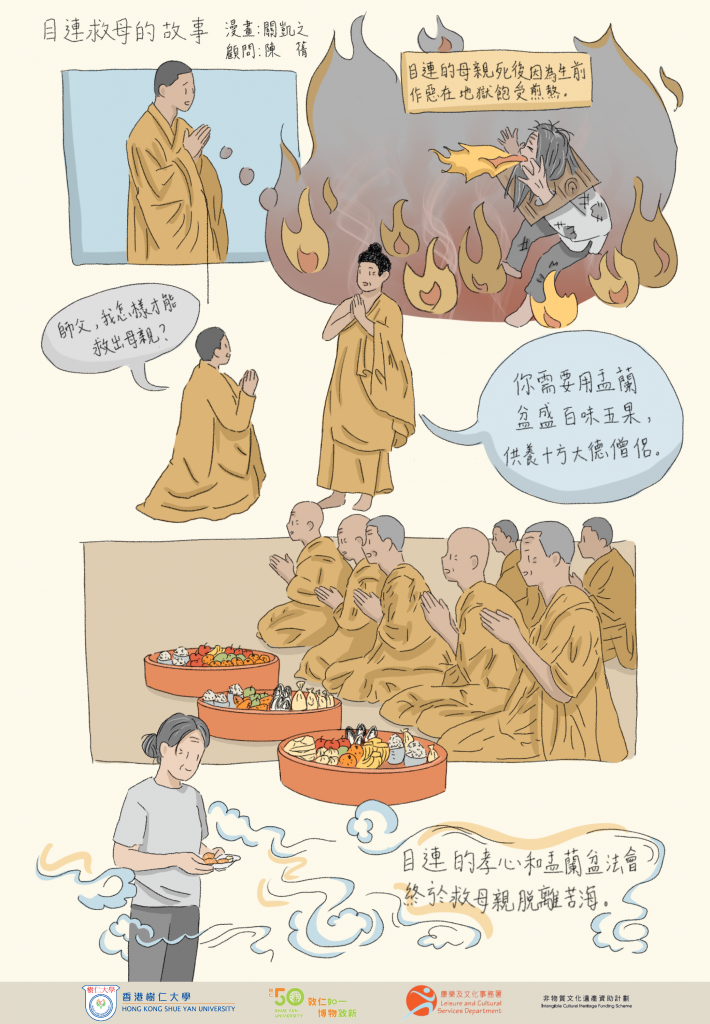
昔日每逢農曆七月,市民紛紛在住處門口的街上進行燒衣和拜祭活動
舊時市民在街上燒衣的情景
潮籍盂蘭勝會與香港早期轉口貿易港的發展
據不少潮籍受訪者表示,戰前已有不少移民至香港的潮籍人士聚集在上環、西環、尖沙咀或銅鑼灣等一帶的碼頭範圍,從事苦力的勞動工作。這群苦力就是籌辦本港歷史悠久的盂蘭勝會的先驅者,他們分別發起籌辦佛教三角碼頭街坊盂蘭勝會、尖沙咀官涌街坊盂蘭勝會、潮州公和堂盂蘭勝會。
早期碼頭 (港口)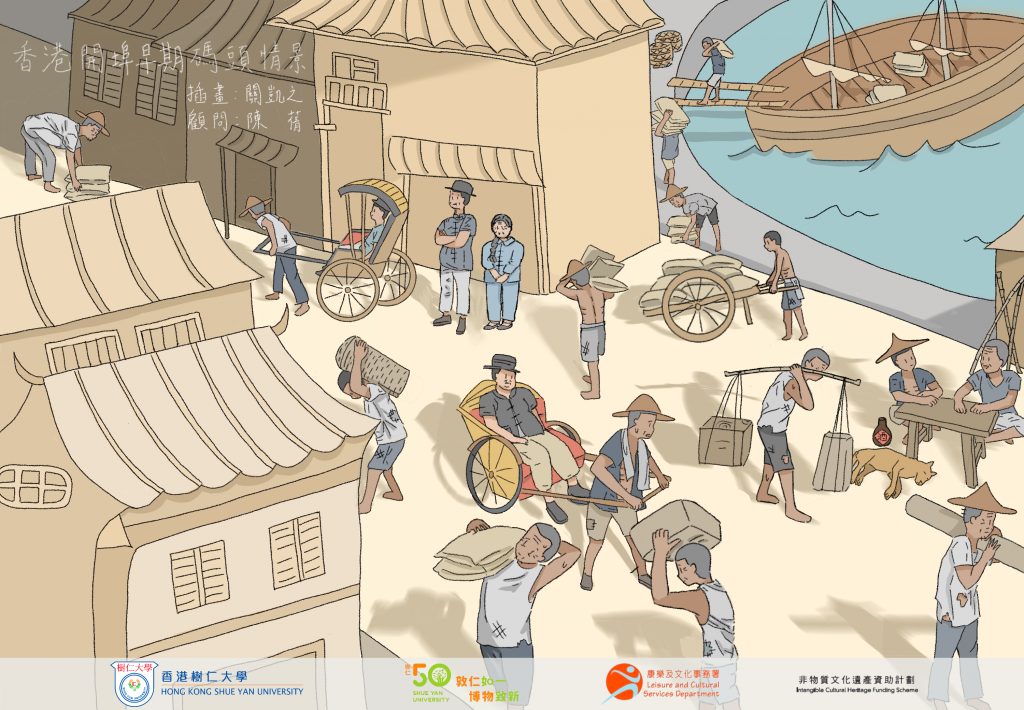
佛教三角碼頭的苦力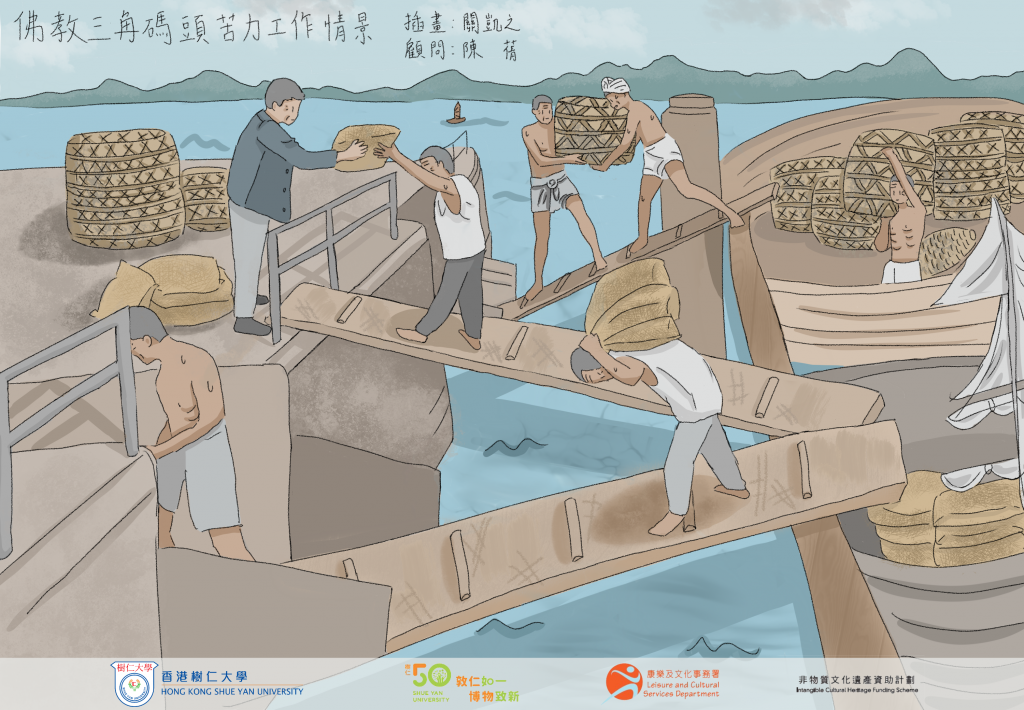
五十年代尖沙咀碼頭廣東道的繁華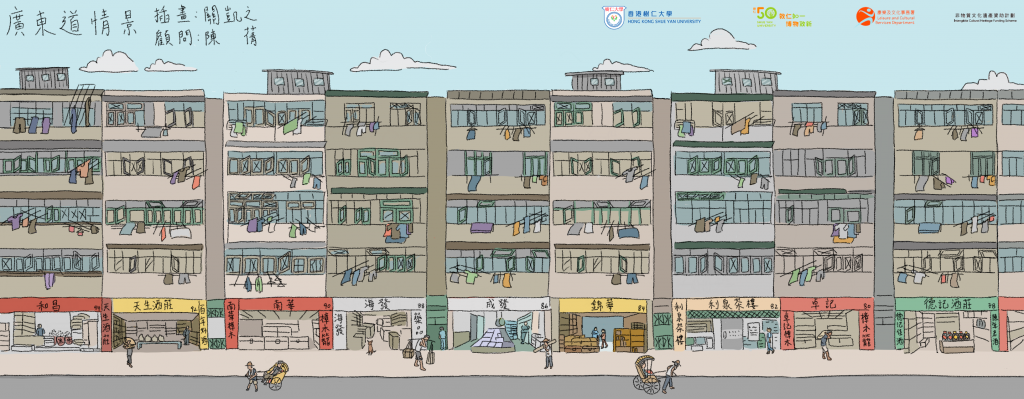
苦力搬運米包
潮州公和堂盂蘭勝會的緣起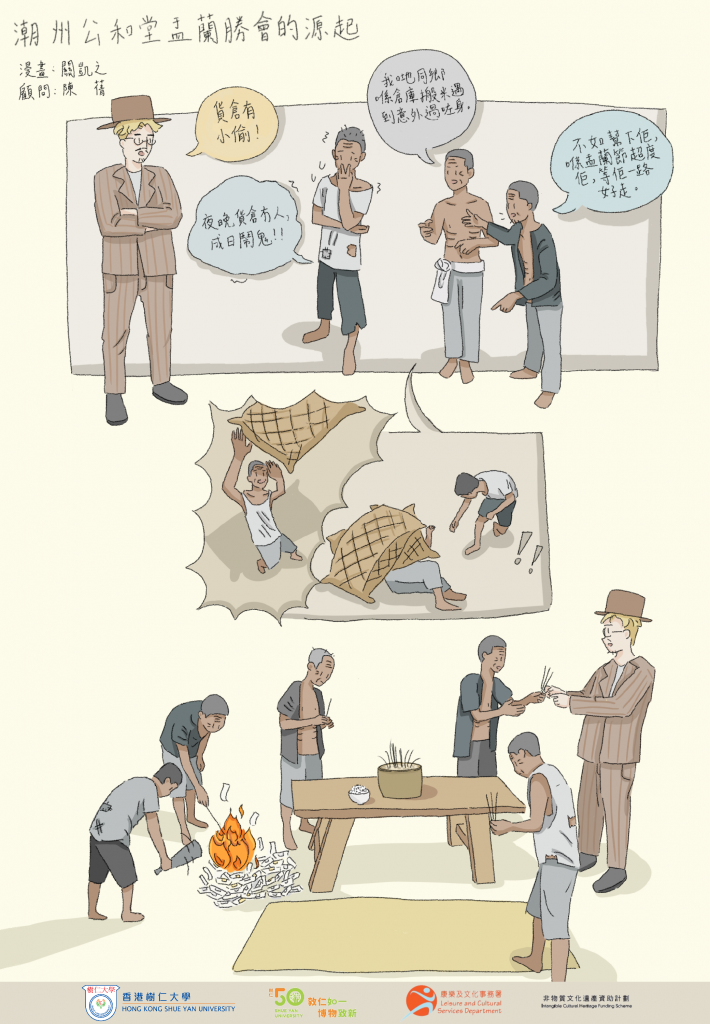
佛教三角碼頭盂蘭勝會的源起
佛教三角碼頭盂蘭勝會的演變
尖沙嘴官涌潮僑盂蘭勝會
盂蘭勝會所呈現的社區精神
籌辦盂蘭勝會需要動員社區上大量的人力、物力,街坊義工用不同的方法募捐善款。除了祭神超幽之外,也會派米給大眾。儀式結束之後,社區居民一起用膳,慶祝功德圓滿。
募捐善款方法
投標籌款情景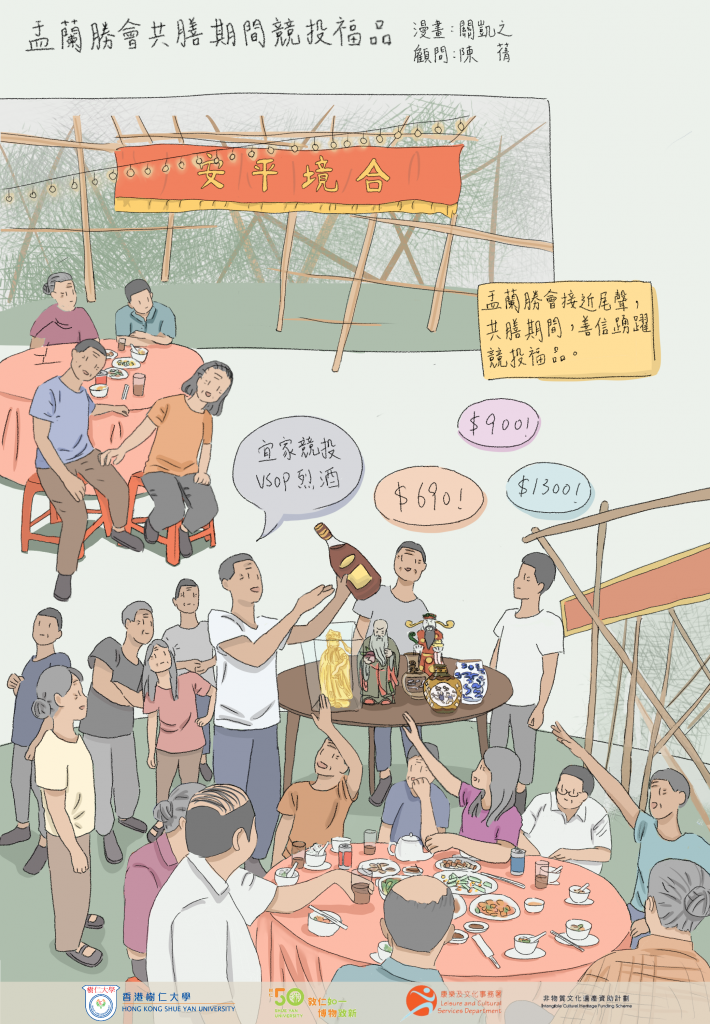
共膳情景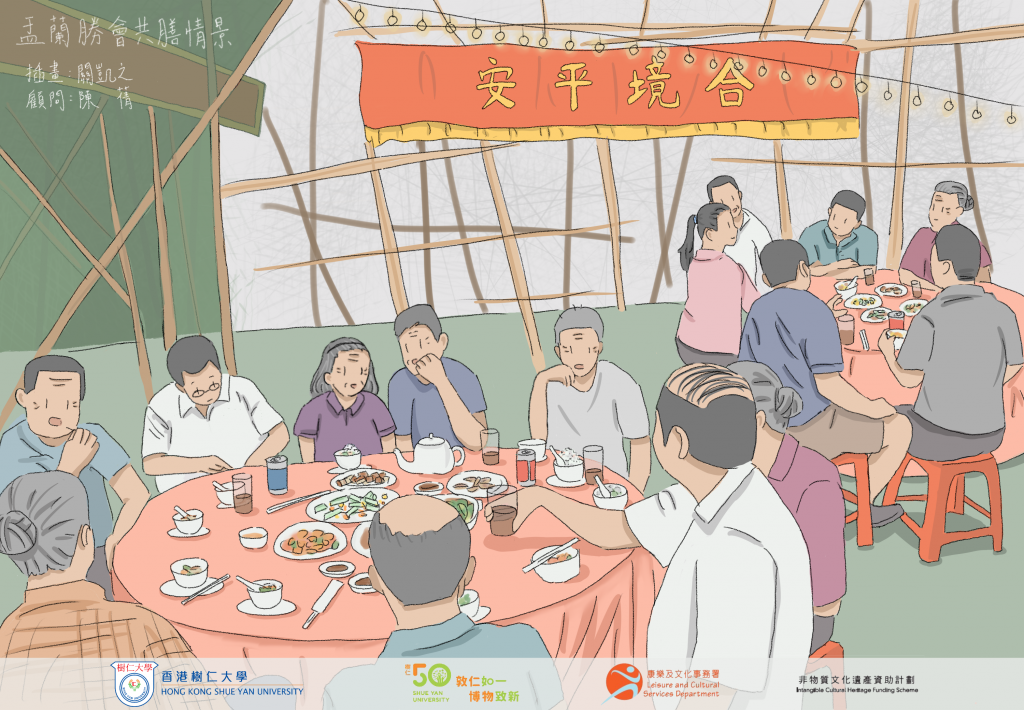
潮籍盂蘭勝會的慈善意義
非物質文化遺產資助計劃—新冠肺炎下香港的潮籍盂蘭勝會:
佛教三角碼頭
full link to video:
https://youtu.be/-n_enlbdGV0
非物質文化遺產資助計劃—新冠肺炎下香港的潮籍盂蘭勝會:
潮州公和堂
full link to video:
https://youtu.be/iolJYnXRX3c
香港潮人盂蘭勝會漫畫和短片發佈會 暨 座談會
Chaozhou Hungry Ghosts Festival in Hong Kong
United Nations Educational, Scientific and Cultural Organization (UNESCO)
Intangible Cultural Heritage
Contributor: Selina Ching Chan (Hong Kong Shue Yan University)
Due to the Covid-19 pandemic in 2020, all kinds of public gatherings were suspended in Hong Kong. All the traditional celebrations of the Chaozhou Hungry Ghosts (Yulan) Festival – Hong Kong’s ICH, and China’s national-level ICH – in the conventional public spaces were cancelled because the government forbade crowd gatherings and refused to release these sports grounds for the festival. Chaozhou operas were abandoned due to crowd control and travel restrictions on performers from Mainland China. Similarly, there was also a shortage on religious specialists for rituals because they were mostly from Mainland China.
In the pandemic, organizers at different districts tried very hard to maintain the traditional festival rituals in order to purify the communities and pray for ……
For full publication:
https://ich.unesco.org/en/living-heritage-experience-and-covid-19-pandemic-01124?id=00381
“The Chinese Diaspora of Southeast Asia and Hong Kong”
Funded by Hong Kong Museum of History, HKSAR Government Amount of Grant: HK$646,800
Project Investigator: Dr. Yew-foong Hui
Project Description:
The Chinese have been migrating to different parts of Southeast Asia since 111BC for political and economic reasons. However, it was only in the 19th to 20th centuries that large numbers of Chinese workers and merchants flocked to different parts of Southeast Asia. Hong Kong and Singapore played an important role in this migratory wave as British colonial ports that facilitated the movement of Chinese populations between South China and various parts of Southeast Asia. Moreover, as a cosmopolitan city on the doorstep of China, Hong Kong has had close connections with Chinese communities in Southeast Asia throughout the mid-19th to 20th centuries, and they continue to be relevant and active today. This project examines the history of Chinese migration to Southeast Asia, highlighting the connections between these Chinese communities and Hong Kong.
“Festivals in Hong Kong: Past and Present”
Funded by the Hong Kong Museum of History, HKSAR Government Amount of Grant: HK$649,478
Project Investigator: Prof. Selina Ching Chan
Project Description:
This research aims to explore the relationship between festivals and the historical development of Hong Kong, and analyze how the performance of festivals reveals the colonial political background and the historical characteristics of the immigrant society. It examines how various festivals have been performed in the era of fishing and farming, entrepot trading economy, industrialization, globalization, and reunification of Hong Kong to China. It also investigates how festivals appear in urban public spaces in new forms and with new meanings at various times, revealing the changes in the daily lives of Hong Kong people and their diverse and complex identities. It examines how the performance of various festivals today embodies the unique hybrid culture with reference to the changes in traditional patriarchal society, the intermixing of different types of cultures brought by the immigrants to Hong Kong, the impact of globalization, as well as the influence of consumerism.
“Edible Heritage and Sensory Heritage Making in Chinatown and Little India (Singapore)”
Funded by the National Heritage Board (Singapore)
Project Description:
This project seeks to document and analyze foodscapes and sensory heritage in Singapore. It does so with particular reference to the case studies of Chinatown and Little India in reflecting how everyday memories and gastronomic experiences serve as avenues through which sensory heritage may be delineated and constructed. Through its research, the project hopes to be able to make pertinent contributions towards the study of intangible cultural heritage, social memory and food studies in Singapore.
“Mapping Diasporic Networks: The Case of the Indonesian Chinese”
Project Description:
This project maps out the migratory paths of Medan Chinese and investigates how they are connected and organized across national boundaries. This part of the Chinese diaspora, distributed across Indonesia, China, Hong Kong and Taiwan, continues to be connected through kinship, alumni or hometown association ties. Through multi-sited ethnographic research in Indonesia, China, Hong Kong and Taiwan, this project will study these ties and ask if they represent a kind of Chinese transnationalism that can persist across generations and geographical regions.